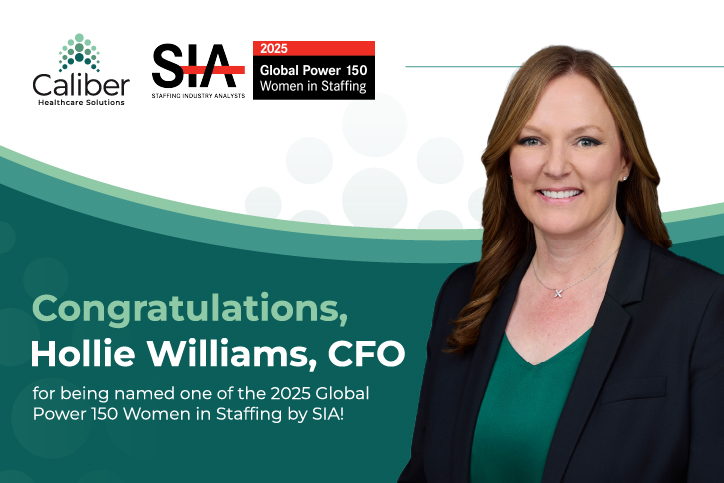
Gastroenterology presents both challenges and opportunities for healthcare providers. The specialty is experiencing significant advancements in technology, increased patient demand, and evolving healthcare delivery models. Amidst these changes, the looming Gastroenterologist shortage heightens the need for adaptable and innovative healthcare staffing models.
Caliber is committed to supporting Gastroenterologists by offering flexible, rewarding practice opportunities through gastroenterology locums. Our goal is to empower specialists to achieve professional fulfillment and deliver exceptional patient care. As we navigate the physician shortage alongside hospitals and health systems, Caliber remains dedicated to partnering with Gastroenterologists at every stage of their career.
Gastro health awareness can be traced back to the early 19th century, with significant development occurring in the late 19th and early 20th centuries. This period saw groundbreaking discoveries, such as the publication of the first textbook on gastroenterology, "Diseases of the Stomach," by William Brinton in 1859, and the advent of the gastroscope, which revolutionized the diagnosis and treatment of stomach diseases. These early advancements highlighted the need for dedicated expertise in digestive health, laying the foundation for gastroenterology as a distinct medical specialty. The formal recognition of the field was further solidified with the establishment of professional societies, such as the American Gastroenterological Association (AGA) in 1897, and the development of specialized training programs.
In recent years, gastroenterology has seen significant milestones, including the advancement in colorectal cancer screening techniques and the development of minimally invasive procedures for treating a wide range of gastrointestinal disorders. These developments have not only improved patient care but also expanded the scope of practice for Gastroenterologists.
At Caliber Healthcare Solutions, we are at the forefront of incorporating these advancements into our staffing solutions, ensuring that our network of healthcare facilities is staffed with Gastroenterologists who are skilled in the latest technologies and procedures. This dedication aligns with our purpose to improve patient outcomes through exceptional gastroenterology care.
The growing aging population and the increasing prevalence of GI diseases have led to a rising demand for Gastroenterologists in the United States. This demand is driven by the need for timely colorectal cancer screening and the management of chronic conditions like irritable bowel syndrome. The Gastroenterologist is becoming a pressing issue, making it challenging for healthcare facilities to provide timely and efficient care. Many are turning to gastroenterology locums solutions to help assuage these staffing gaps.
Technological advancements are significantly transforming the field of gastroenterology. Innovations like capsule endoscopy, advanced imaging techniques, and AI-driven diagnostic tools are revolutionizing how digestive diseases are diagnosed and treated. These tools not only improve patient outcomes but also enhance the efficiency and accuracy of Gastroenterologists' work, allowing for better care delivery.
The career landscape for Gastroenterologists is diversifying, offering more opportunities beyond traditional practice settings. Today, Gastroenterologists can explore roles in ambulatory surgery centers, gastroenterology locums, and positions as GI hospitalists, reflecting the diverse needs of modern healthcare systems. These evolving career paths enable professionals to tailor their careers to match their lifestyle goals and clinical interests.
As we look to the future, the combination of rising demand, technological innovations, and evolving career paths will continue to shape the field of gastroenterology. These trends are essential in ensuring that patient outcomes a top priority and that gastroenterology professionals are empowered to reach their full potential.
The Gastroenterologist outlook is evolving as the field adapts to an aging population and the retirement of many experienced GI physicians. While there is a growing demand for gastroenterological care, particularly in colorectal cancer screening, the current number of training slots for new specialists has not kept pace. This presents an opportunity for the healthcare landscape to innovate and address these physician workforce challenges through several strategies:
Expand Training and Education: Increase the number of training slots for Gastroenterologists to meet the growing demand. Empowering APPs to practice more independently can free up physician time, and streamlining the education and credentialing process can help expedite the entry of new specialists into the field.
Optimize Reimbursement and Insurance Policies: Addressing cutbacks in reimbursement by federal and private payers is essential to alleviate financial pressures on GI practices. Moreover, reducing the influence of insurance companies on patient decision-making can help restore autonomy to GI physicians.
Leverage Technological Advancements: While innovative endoscopic tools and AI technologies offer significant benefits to treating GI diseases, the lack of procedure codes and adequate reimbursement hinders their adoption. Resolving these billing and reimbursement issues is crucial for widespread implementation and improved patient outcomes.
Utilize Ambulatory Surgery Centers (ASCs): ASCs have expanded, offering opportunities for GI physicians, but capacity constraints due to physical space and staffing limitations remain a challenge. Enhancing the role of ASCs can help distribute the workload more effectively, treat GI diseases more quickly, and offer more career diversity within the field.
Locum Tenens and Flexible Career Options: Gastroenterology locum providers can help fill short-term staffing gaps, and they often enjoy a flexible career path that restores work-life balance. This approach not only addresses immediate Gastroenterologist shortages but also supports a more adaptable and resilient workforce and reduces the likelihood of burnout.
By focusing on these strategies, the healthcare industry can better manage the physician shortage and improve the Gastroenterologist outlook, ensuring that high-quality patient care remains accessible. Addressing these challenges holistically will support GI specialists and healthcare facilities in adapting to the evolving landscape of gastroenterology.
Locum positions are increasingly recognized as a critical component in countering the Gastroenterologist shortage. These temporary positions allow gastroenterology locums to fill immediate staffing needs without the long-term commitment, enabling healthcare facilities to maintain uninterrupted service. This flexibility is advantageous not just for the facilities but also for GI hospitalists seeking diverse work experiences, the ability to perform procedures, and opportunities for career development.
With locum positions, Gastroenterologists can explore various clinical settings, from health systems to ambulatory surgery centers, gaining a broad range of experience and contributing positively to different communities where there's a higher demand for specialty care.
The Gastroenterologist creates a job searcher's market, introducing lucrative opportunities for those entering the field. Digestive diseases are the third most costly illnesses in the United States in terms of total economic impact, which means GI services are well-compensated. In fact, gastroenterology is the sixth highest-paid physician specialty. Couple this with the complexity of procedures like endoscopies and colorectal cancer screenings and the demand for specialized care in treating diseases such as hepatitis C, if you're a Gastroenterologist, you can likely choose when and where you work!
Additionally, the evolving model of practice acquisitions by private equity and the integration of ancillary services, such as pathology and anesthesia services, allow for enhanced income streams and a competitive advantage in the marketplace. (Not to mention, there are always 1099 locum opportunities.)
We understand the unique challenges and opportunities within the gastroenterology field. Our approach is tailored to meet these needs head-on, offering a provider-centric model that places the well-being and career aspirations of Gastroenterologists at the forefront of our staffing solutions. By focusing on flexible schedules, highly competitive compensation, and access to a variety of clinical settings, we empower GI specialists to pursue careers that are not just financially rewarding but also professionally fulfilling.
Our commitment to redefining healthcare staffing extends to how we match Gastroenterologists with opportunities. We prioritize aligning our providers' career goals with the needs of healthcare facilities, ensuring a mutual fit that benefits both parties and, ultimately, the patients. Our specialty-focused recruiting teams are entrenched in the GI space, enabling them to provide personalized support and advocacy for our providers.
We aren't just filling an open job. We value each of our providers as a unique individual with distinct career aspirations and lifestyle goals. Our end-to-end support is designed to facilitate not only the current job search but also long-term career planning and development for Gastroenterologists. This includes guidance on navigating locum tenens roles, exploring permanent positions, and advancing within the gastroenterology specialty.
We facilitate custom-fit assignments that align with your objectives. Whether it's providing opportunities for leading-edge cancer screening procedures, supporting work in underserved areas, or fostering engagements with cutting-edge healthcare facilities, Caliber is committed to enhancing your career journey.
As we look to the future of gastroenterology, we're ready to support Gastroenterologists through every stage of their career. Our provider-centric approach ensures that our providers are well-positioned to meet the evolving demands of the healthcare industry, achieve their career goals, and deliver outstanding patient care.
Interested in connecting with a gastroenterology locum recruiter? Tell us a little more about your career goals.
.png)
Posted on
February 3, 2026
Caliber Healthcare Solutions, a leading healthcare staffing agency, announced today that it has achieved a rare and significant milestone by winning ClearlyRated’s 2026 Best of Staffing® Client, Talent, and Employee Awards for Service Excellence. This marks the first time in company history that Caliber has earned the Employee Satisfaction Award, completing a first-ever, three-award sweep that reflects excellence across every stakeholder group the firm serves.

Posted on
October 9, 2025
Caliber is proud to announce that our Chief Financial Officer, Hollie Williams, has been named to the Staffing Industry Analysts (SIA) 2025 Global Power 150 Women in Staffing list. This prestigious recognition honors women who are shaping the future of the staffing industry through innovation, leadership, and measurable impact.

Posted on
August 14, 2025
The OB/GYN workforce is at a pivotal moment. Demand is growing, especially in underserved regions. Meanwhile, retirements, burnout, and legislative pressure continue to shrink the supply of practicing physicians.
.png)
Posted on
February 3, 2026
Caliber Healthcare Solutions, a leading healthcare staffing agency, announced today that it has achieved a rare and significant milestone by winning ClearlyRated’s 2026 Best of Staffing® Client, Talent, and Employee Awards for Service Excellence. This marks the first time in company history that Caliber has earned the Employee Satisfaction Award, completing a first-ever, three-award sweep that reflects excellence across every stakeholder group the firm serves.
.png)
Posted on
January 18, 2026
During National CRNA Week 2026 (January 18–24), we recognize and celebrate CRNAs for their critical role in modern healthcare and their lasting impact on patient outcomes nationwide.

Posted on
October 9, 2025
Caliber is proud to announce that our Chief Financial Officer, Hollie Williams, has been named to the Staffing Industry Analysts (SIA) 2025 Global Power 150 Women in Staffing list. This prestigious recognition honors women who are shaping the future of the staffing industry through innovation, leadership, and measurable impact.

Posted on
July 31, 2024
By 2030, 20% of Americans will be 65 or older, significantly increasing the demand for healthcare services, particularly in gastroenterology. Older adults generally require more GI healthcare, including essential procedures like colon cancer screening.

Posted on
July 30, 2024
With a projected 3% job growth in gastroenterology by 2032 and over half of currently practicing Gastroenterologists aged 55 or older, the field is on the brink of significant changes.

Posted on
July 24, 2024
Perhaps you’ve noticed colleagues who take a month off here and there or heard rumors about spending less time on paperwork and more time with patients. If you're interested in becoming a locum physician, you've landed on the right article.
.png)
Posted on
February 3, 2026
Caliber Healthcare Solutions, a leading healthcare staffing agency, announced today that it has achieved a rare and significant milestone by winning ClearlyRated’s 2026 Best of Staffing® Client, Talent, and Employee Awards for Service Excellence. This marks the first time in company history that Caliber has earned the Employee Satisfaction Award, completing a first-ever, three-award sweep that reflects excellence across every stakeholder group the firm serves.
.png)
Posted on
January 18, 2026
During National CRNA Week 2026 (January 18–24), we recognize and celebrate CRNAs for their critical role in modern healthcare and their lasting impact on patient outcomes nationwide.

Posted on
August 14, 2025
The OB/GYN workforce is at a pivotal moment. Demand is growing, especially in underserved regions. Meanwhile, retirements, burnout, and legislative pressure continue to shrink the supply of practicing physicians.